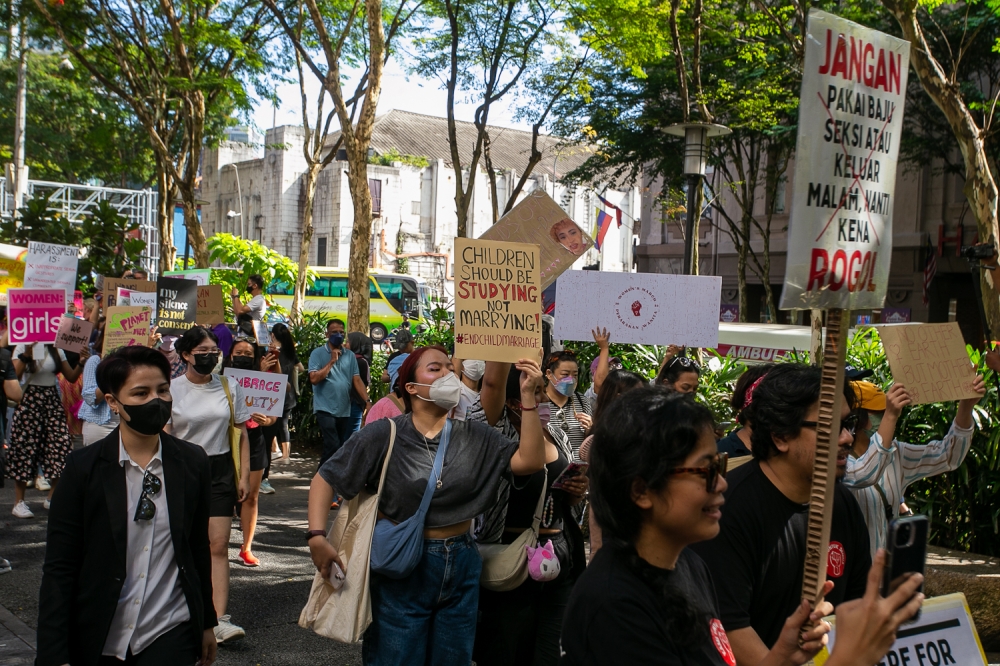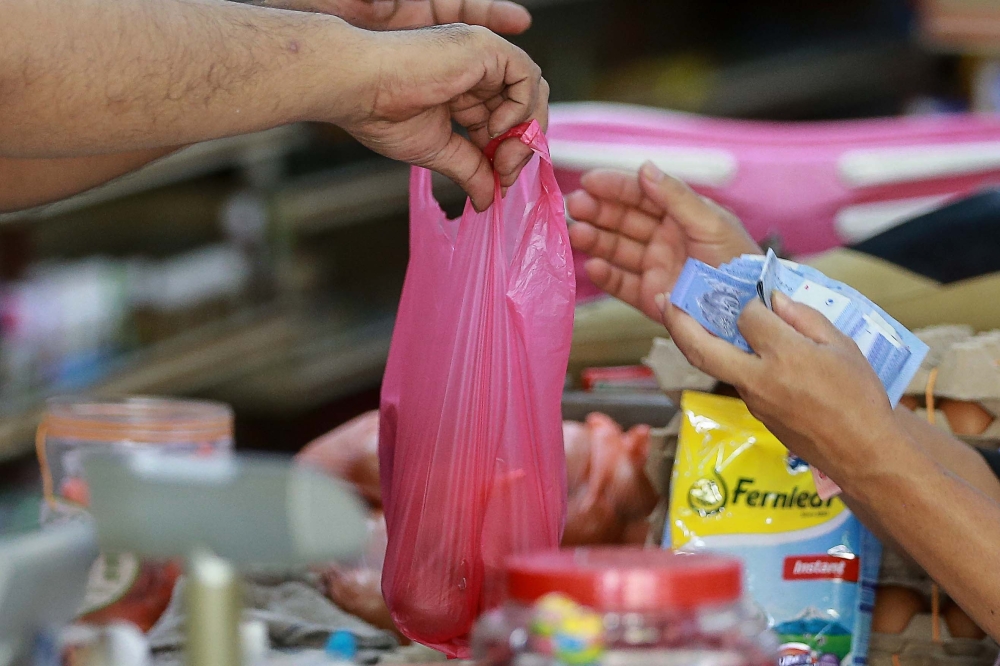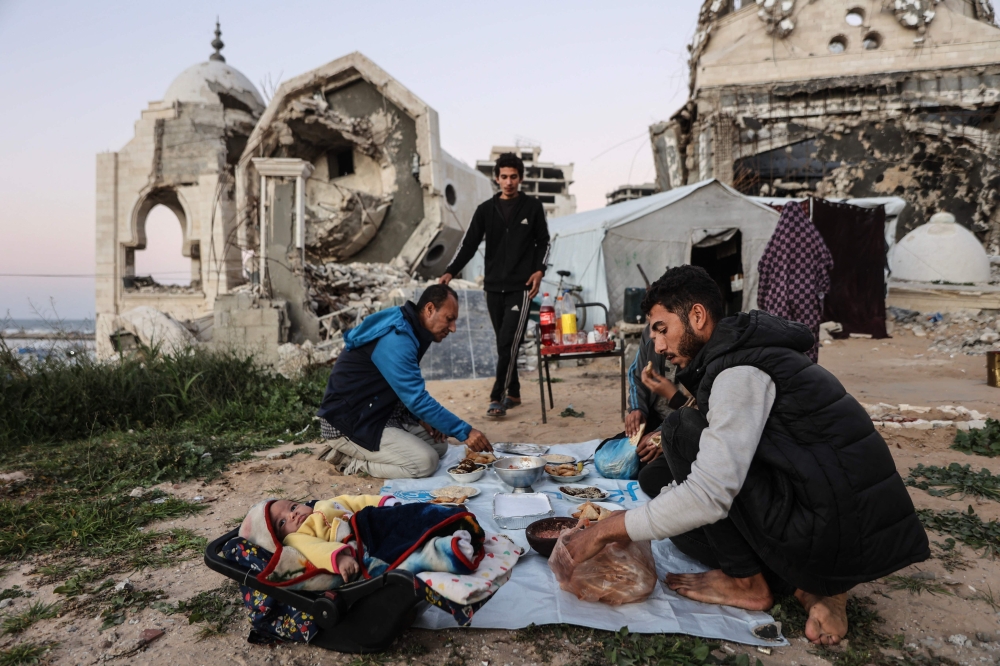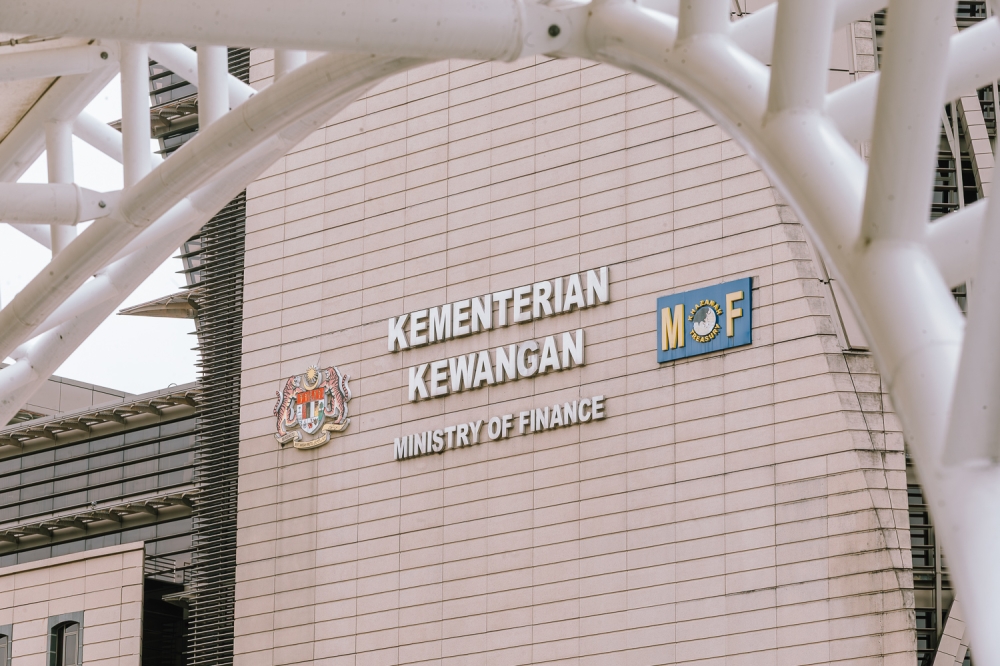MARCH 17 — Justice for Sisters is concerned over prejudicial media reporting and reactions by state and non-state actors to the visibility of rainbow flags and placards at the recent Women’s March held on March 12 in conjunction with International Women’s Day. The march ran from 10am to 2pm, beginning with a march from Sogo Complex to Dataran Merdeka. The Dang Wangi police facilitated the march.
The post-march reactions highlight several concerning trends:
• The misuse and arbitrary use of laws to harass and intimidate organisers and participants resulting in the misrepresentation and mischaracterisation of the march;
• The politicisation of the march; and
• The increasing exclusion and discrimination against LGBTIQ persons in Malaysia.
Lesbian, bisexual, queer, trans and intersex (LBQTI) women are women, and entitled to equality, non-discrimination, and freedom of assembly and expression — guaranteed under the Federal Constitution and by international human rights law.
Arbitrary use of laws and powers
On the same day following the march, police officers hand-delivered notices (also known as 111 Notice) to seven organisers, speakers and participants at their homes late at night, summoning them for an investigation the following day. Investigations are being conducted under Section 9(5) of the Peaceful Assembly Act 2012 (PAA), which is linked to organisers informing the police of the assembly at least five days before the assembly is held; and Section 14 of the Minor Offences Act 1955 on insulting behaviour.
As a party to the UN Convention on the Elimination of all forms of Discrimination Against Women (CEDAW), it has an obligation under Article 7 to uphold women’s public and political participation, which includes their freedom of association, assembly and expression. As such, these investigations under both laws should be dropped immediately as it directly contravenes with Malaysia’s obligations under CEDAW.
i. Misuse of Peaceful Assembly Act (PAA)
The PAA does not require approval or a permit for an assembly. However, the PAA requires the organisers to provide a notification to the police five days prior to the assembly. The organisers of the Women’s March had notified the police six days prior to the march.
Under international human rights law notification prior to assembly is not mandatory. Moreover, non-compliance should not be subjected to criminal or administrative sanctions. It is also important to understand the difference between notification procedure and the permission requirement. The purpose of a notification procedure is to “trigger the positive obligations of the state to facilitate the exercise of freedom of peaceful assembly, consistent with the ‘principle of presumption’ in favour of holding assemblies outlined in the OSCE/ODIHR Guidelines on Assembly’.”
The Special Rapporteur on Freedom of Assembly and Association stresses that the exercise of the right to freedom of peaceful assembly, should be “governed at most by a regime of prior notification whose rationale is to allow State authorities to facilitate this exercise and to take measures to protect public safety and order and the rights and freedoms of others” (A/HRC/20/27, para. 28). He also stresses that notification is not mandatory as there are various contexts in which public assemblies take place, including spontaneous peaceful assemblies or where there is no existing or identifiable organiser. If notification is needed for large assemblies a 48 hours prior notification should suffice.
In the event, where authorities seek to restrict assemblies, the Special Rapporteur on Freedom of Assembly and Association emphasises that the authorities ‘should provide assembly organizers, in writing, with “timely and fulsome reasons” which should satisfy the strict test of necessity and proportionality of the restrictions(s) imposed on the assembly pursuant to legitimate aims.’
Consistent with international human rights law, the Malaysian Court of Appeal found Section 9 (5) of the PAA as unconstitutional for imposing a fine for lack of compliance with the notification requirement.
Thus, in the case of the Women’s March, subjecting the organisers, monitors, speakers and participants of the march to an investigation under Section 9(5) of the PAA is against international human rights standards.
ii. Misuse of Section 14 of the Minor Offences Act to restrict freedom of expression and assembly
Section 14 of the Minor Offences Act was also used as grounds for investigation of the organisers, participants and monitors of the march due to alleged insulting placards. The placards and statements explicitly cited by the police as insulting are scientific facts — such as the notion that women are diverse and includes trans women — and expressions of concern around long standing issues, such as sexual and gender-based violence against women and child marriage, among others.
Subjecting expressions of concerns and facts to investigation violates freedom of expression and creates a chilling effect on freedom of expression, especially on issues surrounding gender equality. Further, the arbitrary application of Section 14 calls into question what constitutes insulting behaviour. Without thresholds and compliance with international human rights standards, such vague provisions of these laws are subjected to abuse.
In 2017, a human rights defender was charged under Section 14 for carrying out a peaceful direct action or protest at an event attended by the Prime Minister. The charge was later dropped. In 2021, the former President of the Bar Council noted that Section 14 of the Minor Offences Act has been used for a variety of cases - insults, stalking, exhibition of inappropriate gestures in public, or photographing indecent acts - due to its wide context. In 2023, two students were arrested by the police over an alleged rant on the history paper of a national examination. In some contexts, Section 14 has been used together with other laws, including Section 233 of the Communication and Multimedia Act (CMA) and Peaceful Assembly Act.
iii. Statement-taking process and serving of 111 notices
Following the Lawan protests in 2021, the police introduced a new practice of hand-delivering the 111 notices directly to those subjected to investigation, often at home, raising panic among family members. Section 111 of the Criminal Procedure Code (“CPC”) allows the police to compel anyone to provide a witness statement.
The intimidation of police continued to be seen when they issued 111 notice right after the event at the homes of participants and organisers. This has raised panic among family members
While the police may not have ill intentions in hand-delivering the 111 notice, given the fear and trust-deficit in the police, such actions can be seen as harassment and intimidation, especially when the investigations are built on weak grounds and the notices are delivered to private homes at odd hours.
We recommend that the police contact witnesses via telephone and share an e-version of the notice. They could also allow the witness to collect the 111 notice by their lawyer. It is important to note that human rights defenders (HRD) have consistently provided cooperation with police in such investigations in spite of the stressful circumstances and costs to their mental health and well-being.

Detrimental impact on marginalised persons
i. Misrepresentation and mischaracterisation of the march and hateful comments
The arbitrary investigation of the organisers, speakers, participants and monitors coupled with statements by the police and media outlets contributed to the misrepresentation and mischaracterisation of the march. The march was frequently referred to as an ‘assembly and march that did not adhere to laws’, and a ‘himpunan LGBT’ (an LGBT assembly) due to the presence of rainbow flags.
This has also resulted in unchecked hateful and harmful comments on social media against those who attended the march, and increased misinformation and manipulation of the details of the march. We believe the criminal investigation of the march also deepens the trust deficit in police and the state, while deterring access to redress for the participants to report cases on violence and discrimination as a result of their participation in the Women’s March.
To illustrate, a social media post by a participant who shared her experience of being sexually harassed by a man was quote-tweeted over 1,000 times. The quote-tweets largely trivialised her experience of sexual abuse and victim-blamed her, made fun of the person for assuming the man’s gender identity, and questioned why she had not lodged a police report, among others. In addition, several social media posts called for actual or perceived LGBT people to kill themselves.
The harms of continued and pervasive use of hateful rhetoric by the state, government agencies and social media users against the LGBTQ persons cannot be underestimated. A Justice for Sisters survey shows 48 per cent of 220 respondents face increased stress due to hateful speech online, while 40.5 per cent have faced discrimination.
ii. Increasing exclusion of LBTIQ women
Central to the negative reaction is the lack of understanding of women in all of their diversity and the exclusion of LBTIQ women. We reiterate again that LBTIQ women are included in the diversity of women. LBTIQ women are subjected to multiple forms of patriarchal and misogynistic marginalisation for being a woman and more so for being an LBTIQ woman. For example, cases of sexual harassment are pervasive, and many queer women have reported being told that ‘they need a real man to correct them’ and that ‘they are a lesbian, bisexual and queer woman because they have not had sexual intercourse with a man.’
In Malaysia, LBTIQ women are criminalised under both federal and state Syariah laws, namely through provisions on musahaqah that criminalise women on the basis of their sexual orientation and consensual sexual acts. LBTIQ women are also criminalised based on their gender identity and gender expression, through provisions targeting ‘lelaki berlagak seperti perempuan’ and ‘perempuan berlagak seperti lelaki’. Collectively, these laws subject LBTIQ women to judicial caning, arrests, sexual assault, arbitary arrest and detention, and public humiliation, among other things.
The criminalisation of LBTIQ women has a systemic impact on their ability to seek employment opportunities or express themselves, to access redress and justice mechanisms, and to mitigate their exposure to violence and discrimination by various actors, including family members. Many reports, including Suhakam’s study on the situation of trans people in Kuala Lumpur and Selangor, highlight the systemic discrimination and violence as well as the lack of protection that trans women face.
We are concerned about the alarming increase of unchecked anti-LGBT statements through social media and media outlets following the march. This is part of a longer-term rise of anti-LGBT sentiments in Malaysia even prior to the march. Centre for Independent Journalism (CIJ) election monitoring shows that offensive speech related to gender and sexual orientation were 3 times higher than offensive speech related to race and religion during the General Election 15. However, they remain unaddressed by authorities. Instead, they are made worse by anti-LGBT statements by state actors, including the prime minister.
Following the march, Justice for Sisters has documented extreme, violent and degrading speech against LBTIQ women and people in various spaces, including social media and Parliament. These include:
• Calls to kill themselves, or be killed, and the ‘extinction’ of LGBT people;
• Calls for physical violence against LGBT people;
• Calls for war or jihad against LGBT people and lust. e.g. An article was published in Harakah, ‘Perang, adakah hanya sekadar angkat senjata?’ (War, is it just a matter of taking up arms?);
• Comparison of LGBT people to animals. Dr Marzuk, member of Parliament of Pengkalan Chepa and former Deputy Minister of Religious Affairs, said in Parliament that “if anyone says that this (LGBT related issues) are human rights, it is not human. The deviant behaviour crosses the limits of animality.” (Jika ada yang mengatakan perkara ini adalah hak asasi manusia, ini bukan manusia. Perbuatan songsang ini melepasi batas kehaiwanan). A Justice for Sisters survey with 220 LGBT people shows 56.4 per cent experienced increased stress, while 33.6 per cent experienced discrimination as a result of anti-LGBT speech by politicians.
Under international human rights law (IHRL), restrictions on the right to freedom of expression are permitted only if they are: (a) provided by law, (b) in pursuit of a legitimate aim, including protecting the rights of others, and (c) necessary and proportionate to that aim. Additionally, IHRL requires that governments restrict speech that constitutes incitement to discrimination, hostility, violence or international crimes. As can be seen in the screenshots below, the comments advocate for discrimination and hatred constituting incitement of hostility, discrimination and violence.
UN Human Rights Council Resolution 16/18 calls on states to speak out ‘against intolerance, including advocacy of religious hatred that constitutes incitement to discrimination, hostility or violence.’ On October 14, 2021, the UN General Assembly elected Malaysia to join the Human Rights Council from 2022 to 2024. Malaysia should show its commitment to human rights by implementing the resolutions of the Council, including those made in Resolution 16/18.
Recommendations
1. Drop investigations against organisers, speakers, participants and monitor of the Women’s March Malaysia
2. The Parliament speakers to enforce Rule 36(4) of the Parliament Standing Orders that prohibits offensive and insulting language or sexist remarks.
3. The Malaysian Communications and Multimedia Commission (MCMC) and the police to monitor the online anti-LGBT remarks following the Women’s March and to provide support for the attendees to lodge complaints and address the online gender-based violence that they are experiencing.
4. Create an enabling environment for the right to freedom of expression and equality in Malaysia, including by passing comprehensive anti-discrimination legislation in line with international human rights standards.
5. Implement positive policy measures to promote equality, nondiscrimination and inter-cultural understanding in line with Human Rights Council Resolution 16/18 and the Rabat Plan of Action.
*This is the personal opinion of the writers or publication and does not necessarily represent the views of Malay Mail.
** If you are lonely, distressed, or having negative thoughts, Befrienders offers free and confidential support 24 hours a day. A full list of Befrienders contact numbers and state operating hours is available here: www.befrienders.org.my/centre-in-malaysia. There are also free hotlines for young people. Talian Kasih at 15999 (24/7); and Talian BuddyBear at 1800-18-2327(BEAR)(daily 12pm-12am).



















